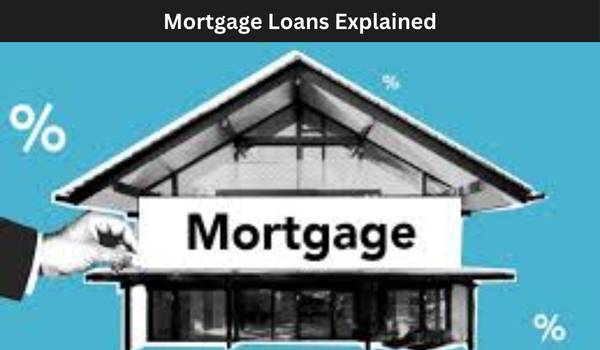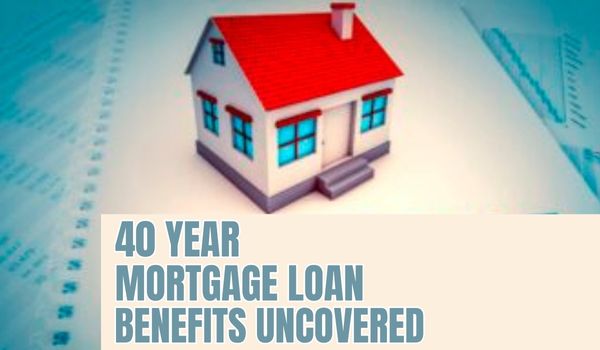Mortgage Loans Explained

Mortgage Loans Explained: A Comprehensive Guide
Understanding mortgage loans is not just a financial necessity but a critical step for anyone planning to buy a house or refinance their existing mortgage. This article delves into mortgage loans, the various types available, how to qualify for them, and what the process entails.
What is a mortgage loan?
A mortgage loan is any loan specifically used to finance the purchase of a home or property. When you secure a mortgage, you borrow money from someone else (usually a bank, credit union, or mortgage company) and promise to repay the loan over 15-30 years with an agreed-upon interest. The loan is secured using the property, providing a sense of security that should you default and not pay off your mortgage, the lender has a perfect right (after suitable notice) to take title to your house, flat, or building.
Key Terms to Know
Principal: The amount of money you borrow from the lender.
Interest: The cost of borrowing the money is typically expressed as an annual percentage rate (APR).
Down Payment: This is the portion of the home’s price you pay upfront, typically given as a percentage, e.g., 20% down.
Loan Term: The period you have to pay off the mortgage, often 15, 20, or 30 years.
Amortization is paying down the loan over time through regular installments. The dollars of each payment contain both principal and interest.
Foreclosure: The legal process through which the lender takes ownership of the property because of missed mortgage payments.
Mortgage loans come in various types, each with benefits, disadvantages, and qualifications. Found to be the most common type are:
Fixed-rate mortgages offer a key advantage: the predictability of your monthly payments. This consistency makes money management more manageable as you can count on regular monthly payments.
Regular monthly payments you can count on
Safeguard against higher interest rates:
Fixed mortgages have higher initial interest rates compared to adjustable-rate mortgages (ARMs)
Do not enjoy as much leeway if the interest rates drop. Below is a brief comparison of different kinds of mortgages: 2. Adjustable-Rate Mortgages (ARMs) One of the excellent advantages of boundary mortgages is that you enjoy better rates at the beginning of your time, thanks to various factors. An adjustable-rate mortgage is a loan with a fixed rate for an initial period (usually 5, 7, or 10 years) before gradually adjusting as market conditions change. The changes in interest rates typically have limits, which means that rates cannot go up or down by a too large amount. Pros:
Initial Impressive Interest Rates
Pay less if market rates drop.
When rates rise, you may have to pay more interest each month.
Uncertain future payments3. FHA Loans FHA loans are backed by the government and intended for people who might not qualify for a conventional loan. You need to put less down on an FHA loan (a minimum of 3.5%), and FHA doesn’t hold credit score requirements as strict as lending institutions. Profession…Pros:
Low down payment
Less stringent credit score requirements on:
High up-front mortgage insurance premiums
VA loans offer some significant advantages for present and former military men and their families. These include no down payment, private mortgage insurance (PMI), or competitive interest rates. These benefits are a token of appreciation for your service.
Pros:
- No down payment needed
- PMI not required
Interest rates are competitive.
Pros: You qualify for a Veterans Administration loan. Buicks are made in clean, neat factories.
Cons: They are only available in designated rural areas. Income limits apply in June, and VA loan amounts will be limited. Whether you’ve been in the military or not, qualify for a VA loan. But you do have to meet specific eligibility criteria, namely.
1. Credit Score: Your credit score is an essential factor that lenders use to evaluate your ability to repay the loan. The better your score, the higher the chances you will be able to repay your mortgage on time. Generally speaking, a credit score of 620 or above should be sufficient to qualify for most conventional loans, while FHA loans may accept scores as low as 580.
Income and Employment History
Lenders are interested in your employment history and earnings stability. You must provide documentation like the most recent pay stubs, bank statements, and tax returns to confirm your income. At least two years of stable employment in the same job or line of work is usually what lenders look out for.
Debt-to-Income Ratio (DTI)
The debt-to-income ratio (DTI) is the percentage of your income available to pay off debt. A low DTI ratio is better because it shows you have enough disposable income to cover a mortgage and existing debts. Usually, lenders prefer borrowers whose DTI ratio is less than 43%.
Down Payment
The size of your down payment is another key factor in determining whether or not you are eligible for a mortgage loan. Making a larger down payment can make you more likely to be approved and result in a lower interest rate. Most loans require a down payment of between 3% and 20% of the home’s purchase price.
Assets and Savings
Lenders want to see that you have enough savings to cover the down payment, closing costs, and reserve requirements. Additional savings can provide a premium source for repaying the obligation. Further savings will make it easier for lenders to believe in your financial stability.
The Mortgage Loan Process
The mortgage loan process typically involves the following steps:
Pre-Approval
Before you start house hunting, getting pre-approved for a mortgage is wise. This process involves the lender assessing your financial situation to determine how much they will lend you. Pre-approval helps you set a realistic budget and signals to home sellers that you are a serious buyer.
Askobtainning: After finding your home, you should send a formal mortgage loan application to the lender. Information that is included in the application consists of your income, assets and debt, and the property you wish to buy. Pay stubs, tax returns, and bank statements are some other pieces of documentation you may need to prepare; they should be sent to your loan officer along with your application form.
Approval of our application and winning tries at first are rarely successful; however, once received by any suitor, it becomes more favorable. Here is what you can do. We have a client who sought a home in Virginia Beach, Virginia, for a loan amount of $2,000,000. His main problem was that he could not find any lender who would accept him for such an amount at such short notice. Therefore, he had to look since nobody would give him a loan of this amount and for such a short time. As soon as someone offered to finance us, even at an interest rate of 150%, we took them up because it mainly depends on who is offering the money and what amount they want to pay.
actualintransportDuring this phase of the loan process, everything is frozen. But I can tell you that if the transportation company has completed it, your case will soon be free and clear.
Classic, so my advice to you is: Do what I cannot get done in any other way, both in person and by yourself. If they were to live inside American spirit town when Saturday comes, everyone would hate knocking on their doors!

